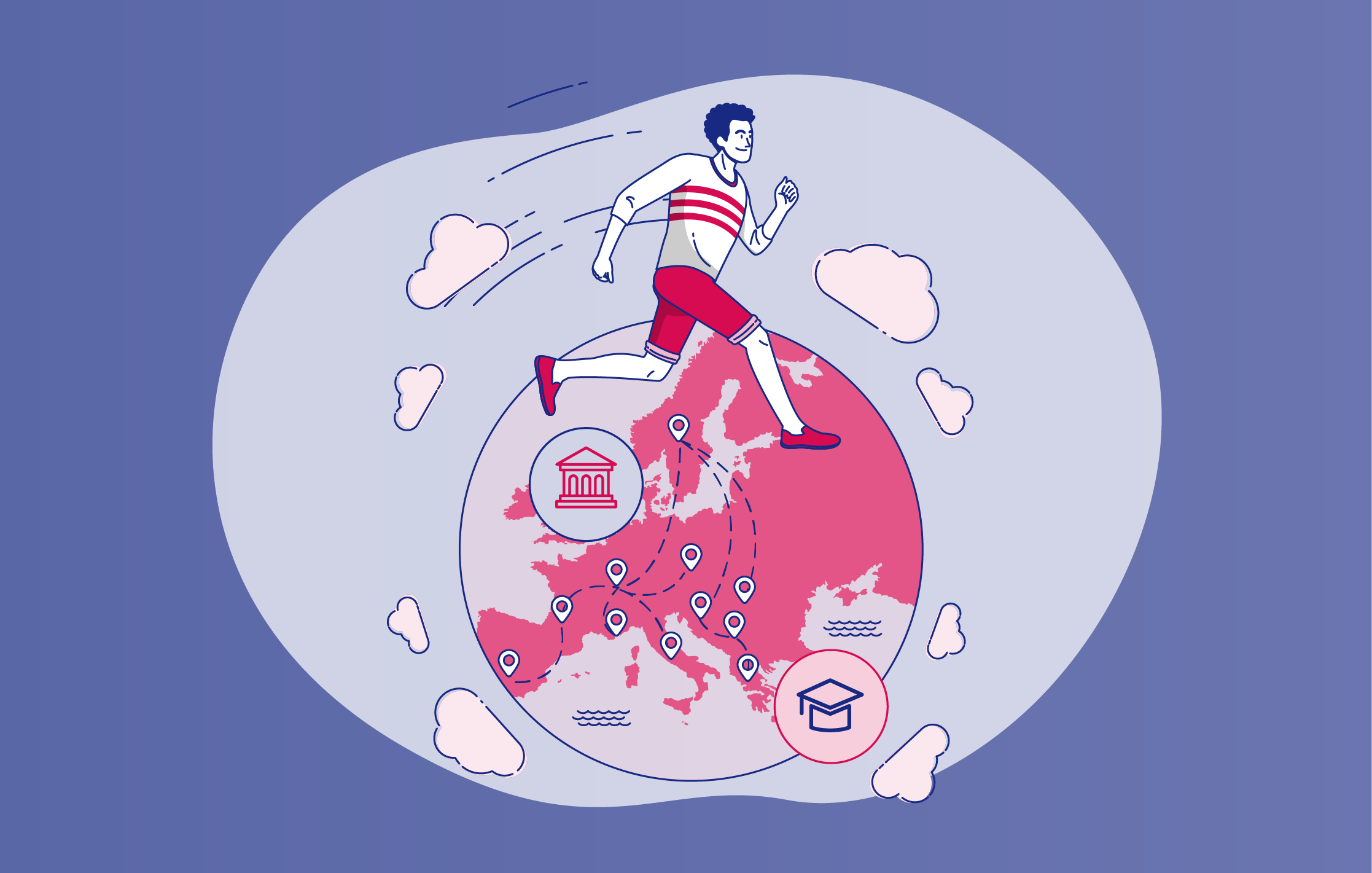Erasmus+ is the European Union’s programme to support education, training, youth, and sport in Europe. Launched in 2014, it provides opportunities for individuals and organisations to engage in cross-border mobility and collaboration, fostering skills development, cultural exchange, and innovation in these fields. The programme runs until 2027 with a focus on inclusion, digital transformation, green initiatives, and active citizenship.
Key Features of Erasmus+:
- Mobility: Students, trainees, staff, and youth can participate in exchanges or internships abroad to gain international experience and skills.
- Cooperation Projects: Organisations can collaborate on partnerships to develop best practices and innovative solutions.
- Focus Areas: Inclusiveness, sustainability, and fostering a European identity through cultural and educational initiatives.
Erasmus+ and the Western Balkans:
The Western Balkans has a close relationship with Erasmus+ as part of the EU’s strategy to enhance regional cooperation and support the EU accession process.
- Impact on the Region:
- Education: Supports higher education reform, modernisation of universities, and internationalisation.
- Youth Engagement: Encourages active participation of young people through exchange programs and volunteer opportunities.
- Capacity Building: Develops institutional capacities in education and youth organisations.
- Social Inclusion: Addresses challenges like unemployment and social cohesion by providing opportunities for disadvantaged groups.
- Regional Cooperation: Erasmus+ projects in the Western Balkans promote collaboration among institutions and individuals, fostering mutual understanding and regional stability.
News:
- Erasmus Mundus WINTOUR Master Opens Scholarship Opportunities for Students from the Western Balkans
- Erasmus+ SaveLife Project: Reorganizing Basic/Advanced Life Support Training Through the Use of Innovative Digital Materials
- Erasmus+ Consultations with Students Held in Montenegro
- Online Info session – Capacity Building in Higher Education (CBHE) Action
- Culture on the Move: Erasmus+ through Intercultural Networking
- Erasmus+ Information Session in Cetinje: Supporting Higher Education Participation for 2025
- Results of Erasmus+ Capacity Building Projects in Higher Education
Events:
- Online Info session: European Universities 2026 Call for proposals
- Erasmus+ 2025 Calls: Opportunities for Pact for Skills Members Knowledge Event
Calls:
- Erasmus+ Call for Applications for the Radboud University Summer School
- Erasmus+ Call: Centres of Vocational Excellence (CoVEs) to Transform Vocational Education and Training
- Erasmus+ Call: Forward-Looking Projects for Innovative and Digital Solutions
- Erasmus+ Call: Cooperation Partnerships
- Erasmus+ Call: Alliances for Innovation – Strengthening Education, Skills, and Enterprise Collaboration
- Erasmus+ Teacher Academies 2025
- Erasmus+ Capacity Building in the field of Youth in Western Balkans
- Call for proposals 2025 – EAC/A08/2024 – Erasmus+ Programme
Documents:
- Erasmus+ Capacity Building in Higher Education (CBHE) Action, Western Balkans Report
- EU-Western Balkan Cooperation Through Erasmus+
- From Mobility to Opportunity: How Erasmus+ Shapes Lives and Careers in the Western Balkans
- Unlocking the Potential of Erasmus+ in the Western Balkans: A Students’ Perspective
- E-learning Course: Erasmus+ Funding Opportunities for Adult Education Providers
- 2025 Annual Work Programme for the Implementation of Erasmus+
- Erasmus+ Programme Guide 2025
- Self-paced Course: Erasmus+ Funding Opportunities for Schools
- Erasmus+ 2023 Annual Report: Supporting 1.3 Million Participants and 32,000 Projects
Institutions and Organisations:
- National Agency for Erasmus+ in North Macedonia
- National Agency for Erasmus+ in Serbia
- Erasmus+ Office in Montenegro
- Erasmus+ Office in Kosovo
- Erasmus+ Office in Bosnia and Herzegovina
- Erasmus+ Office in Albania
Initiatives:
- Re-imagining the Playing Field – a Gender Equality in Sport Project
- Vitalizing ICT Relevance in Agricultural Learning (VIRAL)
- WeB-Nimbus Project
- Strengthening University Autonomy and Increasing Accountability and Transparency of Western Balkan Universities
- Empowering Grassroots Sport for Inclusion and Development
- Athletes Speakers – Helping Athletes to Find their Voice as they Transition from Sport to Life
- Inclusion Through Sport for all Generations
- Re-imagining the Playing Field – A Gender Equality in Sport Project
- Sport + Youth 4 Inclusion =ity (Equality)
- MindPlay – Fostering Wellness Through Sport

